Feb 2013
Feb 2013 sadmin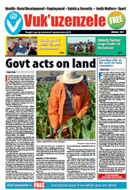
Govt acts on land
Govt acts on land sadminIt is 100 years since the Native Land Act of 1913 was enacted, reserving 87 per cent of the land for white South Africans while evicting blacks from their ancestral land. As the country prepares to commemorate 19 June 1913, when the Act was passed by the Parliament of the day, efforts to undo this historical injustice continue apace, albeit at a slower rate than anticipated.
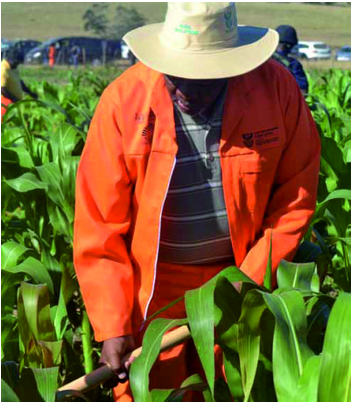 Driving the process of land restitution is Minister of Rural Development and Land Reform Gugile Nkwinti.
Driving the process of land restitution is Minister of Rural Development and Land Reform Gugile Nkwinti.
Following the democratic elections of 1994, government undertook to transfer 30 per cent of land (24.5 million hectares) to black farmers by 2014, a target that is unlikely to be met, as Minister Nkwinti admits.
“We have transferred about three million hectares now which is very little, making only 7 per cent of land that is redistributed. It’s a challenge, this 30 per cent by 2014 is a challenge and I hope we will get there but I’m not very optimistic. I’m not chasing numbers, I’m chasing development and food security.”
Minister Nkwinti identifies two main challenges in efforts to redistribute land. The first challenge is that only 37 000 commercial farmers are responsible for 90 per cent of food production in the country. “That is unsustainable,” he says. “That figure, 10 years ago, we are told by research, was about 90 000 and that figure does not reflect redistribution; it reflects a deeper concentration of ownership in fewer hands,” he explains.
Minister Nkwinti argues that, over the past 100 years, there have been shifts in terms of land ownership. “Some people say we are talking about 87 per cent (of land in white ownership) and 13 per cent (of land in black ownership), but things have moved since 1994. There are many people who bought land and there are many people government has bought land for.”
He adds that the exact figure will only be published once the land audit process is concluded. Minister Nkwinti says 95 per cent of the state land audit has been completed.
He adds that land reform should not just be about how much land is given back to claimants, but should include skills transfer. According to the Minister, claimants should be empowered to use land productively for job creation, food security and attract young people to farming.
He says the unstructured taking over of productive farmland and handing it over to unskilled people is not doing government any good. It also creates social ills such as crime and unemployment, especially in townships where municipal resources get depleted as a result of an influx of people whose land has been taken away by government without assisting them in developing their skills.
Making a difference
In 2009, the department introduced one of its key programmes called the Recapitalisation and Development Programme (RADP) after a study conducted between 2005 and 2008 revealed that over 3 000 farms were not doing well. The department put the farms under the RADP.
The programme aims to increase the number of farms producing food for households, create jobs, improve income for farmers and employees, increase the capacity of emerging farmers and increase productivity levels on farms.
“To ensure the success of these farms, the department selected strategic partners who are farmers or have experience in farming as mentors for the emerging farmers,” he explains.
The Minister says big farming organisations such as Grain South Africa lauded the programme and were happy with the impact it has on developing new farmers. “They say the recapitilisation programme is rapidly closing the gap between what we historically know as emerging farmers and commercial farmers.”
Minister Nkwinti says for government to succeed in reversing the brutal eviction of 1913, it should assist beneficiaries with skills to manage the farms they have acquired.
Smoother ride on the cards for train commuters
Smoother ride on the cards for train commuters Estelle GreeffFrom 2015, train commuters will be travelling in slick new trains with modern features such as Wi-Fi, CCTV cameras, comfortable seating, air conditioning, route maps, on-board communication and toilets.
Overcrowding, delays, crime and train surfing will be a thing of the past as commuters experience the benefits and dignity of modern travel.
This will all be thanks to the Passenger Rail Agency of South Africa’s (PRASA) new fleet of trains.
Group head of communication at PRASA Moffat Mofokeng said 3 600 trains valued at R51 billion would be delivered over a 10-year period from 2015, creating 8 088 direct jobs.
This will be the result of PRASA upgrading its rolling stock fleet. PRASA will operate the normal Metro train and the more luxurious Metro Express. Both trains will run with six carriages during off-peak hours and 12 carriages during peak hours.
Since 2010, PRASA has been stepping up efforts to improve the rail network, as well as purchase new passenger and goods trains.
Transport Minister Ben Martins said the new fleet would contribute to improvements in the rail network across the country.
“This process is more than just purchasing of trains. We are reviving our rail engineering sector, contributing to skills development and job creation, amongst other bigger objectives.”
Mofokeng said the new trains would be phased-in in three corridors. The first line will be from Mabopane via Pretoria and Germiston to Park Station and Naledi. The second will be the south to north corridor in KwaZulu-Natal (Umlazi, Durban and KwaMashu). The third will be the Cape Town to Philippi route in the Western Cape.
“Those corridors were chosen due to the large demand of our services in those areas. We are not saying other areas are not important but we want to ease the pressure on those specific areas and in the next phase we will be focusing on those areas.”
He added that the doors of the new trains will work automatically. “The doors will use electronics and once the train moves the doors won’t open. They will only open when it stops.”
Mofokeng said commuters could look forward to comfortable, safe and reliable train travel made possible by PRASA.
For more information contact PRASA on 012 748 7000.
SA’s first green school brightens up young lives
SA’s first green school brightens up young lives sadminInfrastructure development
Last year Thato Kekana attended school in a prefabricated classroom, always at the mercy of the weather.
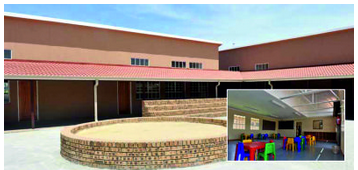 Those days are over for the 11-yearold, who will complete her final year of primary school in the comfort of South Africa’s first environmentally friendly school - Orefile Primary.
Those days are over for the 11-yearold, who will complete her final year of primary school in the comfort of South Africa’s first environmentally friendly school - Orefile Primary.
The school in Olievenhoutbosch, Gauteng has been dubbed the “Green School” and opened its doors for the first time in 2013.
Kekana used to share a prefabricated classroom with 48 pupils at Philena Primary School.
She recalled the problems she experienced at her previous school. “During winter the classroom got really cold and in summer it would get extremely hot. The school had a lot of dust and it caused me to sneeze all the time.”
Kekana is excited about her new school where she will be able to take part in sports such as netball and volleyball.
Of the 1 192 pupils at the Kekana’s old school, 617 have been transferred to Orefile Primary, while the rest will remain at Philena Primary. Orefile Primary was built using alternative construction methods, which are environmentally friendly.
“This building system comprises lightweight steel frames that are joined together and cladded with fibre cement boards filled with lightweight concrete mix. The assembling and fabrication of the steel superstructure was done on site using trained labour,” said Chief Operations Officer of the Industrial Development Trust (IDT) Ayanda Wakaba.
The Gauteng Department of Infrastructure Development instructed the IDT to build Orefile Primary and it took just 10 months to complete the school, which is worth R33.4 million.
“The system used was easier and faster when constructing, cutting down on time and costs compared to the conventional brick and mortar methods. No stone or wood was used and all material was manufactured on site reducing the transport carbon footprint,” explained Wakaba.
The system is compliant with international building standards and meets the testing requirements of the South African Bureau of Standards and Agrément South Africa.
Using alternative construction methods means that the building can resist fire for up to four hours, the walls are three times lighter than brick walls and was easily erected and rapidly constructed.
“The building is scuff and abrasion resistant. It has a thermal insulation meaning that it can store heat during winter. It has sound insulation and even though the walls are lighter, they do not transmit sound easily. This means that one can’t hear the sound coming from the next classroom,” Wakaba added.
The school has 24 classrooms - three for Grade R, eight for the foundation phase, nine for the intermediate and four for senior phase.
It also has an administration block, computer and multimedia rooms, storerooms, laboratories, sport fields, ablution facilities and a nutrition centre.
During a tour of the school, Clever Shikwambane, the first principal of Orefile Primary, said his initial concern was keeping the school in its current condition.
At Orefile Primary green grass covers the combined rugby and soccer field, with the netball and tennis court nearby.
Green fencing encircles the school and the fields surrounding it. There are large quad areas that will be used for assemblies for each phase.
The school structure built with brown bricks is separated into sections to keep the foundation (Grade R - 3), intermediate (Grade 4 - 6) and senior phases (Grade 7) apart. This is designed to limit bullying that occurs when age groups are combined.
The spacious classrooms can accommodate 40 to 45 learners.
The floors are tiled in blue, matching the small chairs in the junior classrooms. In the Grade R classrooms there are toilets and also a sickroom.
“The most important thing is that children must receive quality education as a foundation for their careers. They must be able to read and write from an early age,” said Shikwambane.
He emphasised that the school belonged to the community, not government. It was up to the community to protect it and ensure everything was in order, Shikwambane said.
“I hope the new school will help me achieve my dream of studying to become a doctor so I can help all the sick people,” said an ambitious Kekana.
For more information contact Gauteng Education on 011 355 0000.
NEF gives black entrepreneurs a helping hand
NEF gives black entrepreneurs a helping hand sadminThe National Empowerment Fund (NEF) has to date approved R4.5 billion in funding for black entrepreneurs in different sectors of the economy.
 In its funding model, the NEF has developed finance products ranging from R250 000 to R75 million for black entrepreneurs wanting to start new businesses or grow existing ones.
In its funding model, the NEF has developed finance products ranging from R250 000 to R75 million for black entrepreneurs wanting to start new businesses or grow existing ones.
The NEF is one of the 14 agencies under the Department of Trade and Industry established to promote and facilitate black economic participation by providing financial and nonfinancial support to black empowered businesses.
The NEF provides finance for rural and community development initiatives, conventional entrepreneurship, franchising, procurement funding, expansion capital and acquisitions. One aspect that sets the NEF apart from others who provide finance is its on-going support to recipients of the agency’s financial backing.
Accessing funding
Like any other institution giving finance to people, the NEF has procedures that need to be followed by applicants.
Below are the steps to be followed when applying for funding from the NEF:
- Register a business.
- Draw up a business plan. (It should include all the documents listed on page 3 of the application form that is available at NEF offices.)
- Get the application form from any NEF office or from the website and fill it in.
- Submit the business plan and application form at any of the NEF offices, online or by post.
- Your application will be assessed by the NEF and if it is successful funds will be allocated to your business.
Types of funding provided by the NEF
Entrepreneurship finance for starting a new business: R250 000 – R10 million.
Procurement finance for tenders and contracts: R250 000 – R10 million.
Franchise finance for pre-approved franchise licenses: R250 000 – R10 million.
Expansion capital for growing an existing business: R 250 000 – R10 million.
Project finance for participation in green field projects: R5 million to R75 million.
For more information about the NEF visit the website - www.nefcorp.co.za, call 0861 843 633 or 011 305 8000 or email: info@nefcorp.co.za
New schools make learning a joy in Eastern Cape
New schools make learning a joy in Eastern Cape sadminInfrastructure development
Thousands of Eastern Cape pupils, who were once taught in mud huts and other unsafe structures, started school with raised spirits this year as they entered brand-new classrooms.
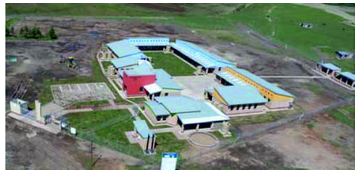 At least 2 000 pupils have benefitted from the 10 new schools completed in October and November 2012 – including four schools opened by President Jacob Zuma in October.
At least 2 000 pupils have benefitted from the 10 new schools completed in October and November 2012 – including four schools opened by President Jacob Zuma in October.
Each school has electricity and is fitted with a science laboratory, an information technology centre and a library.
They form part of 49 schools to be built through the Accelerated School Infrastructure Development Initiative (ASIDI) in the Eastern Cape by the end of March 2013.
“We are so happy,” said Maureen Mjali, the former principal of Dumile Senior Primary School, one of the recently completed schools, which is situated 35km from Mthatha.
Mjali said the old school had mud walls, making classrooms dusty and space scarce.
She added that pupils were now more motivated, pointing out that there had been 300 applications for the 135 spots for pupils at the school.
The school’s principal Mkuseli Mangqishi said the new science and computer laboratories would make a huge difference to the lives of pupils.
Nomveliso Majeke, the principal of Kwezilethu Junior Primary School, also near Mthatha, said her school’s new classrooms would have a positive impact on school attendance.
Previously pupils often stayed away when the weather was bad and the mud-walled classrooms were flooded.
ASIDI project manager Tsholofelo Diale, from the Department of Basic Education, said once the 49 schools were completed, 12 337 pupils would have new schools. The programme aims to replace inappropriate school structures, address basic services backlogs and the provision of these services. It forms part of the government’s 13th Strategic Infrastructure Project (SIP), which involves the rebuilding of schools.
The R8.2 billion public-private programme aims to eradicate the 496 mud schools in the country, provide water and sanitation to 1 257 schools and electricity to 878 schools by March 2016.
The next batch of schools to be built as part of the programme, include 97 schools to be completed by the end of March 2014 – most of them primary schools.
In all, 50 will be built in the Eastern Cape, 20 in Free State, 14 in the Western Cape, five in Mpumalanga, three each in KwaZulu-Natal and Limpopo and one each in the Northern Cape and North West.
Contractors were being appointed in the Eastern Cape and Western Cape, while an implementing agent has been secured in Free State to source engineers and designers before contracts are put out.
Diale said each new school would have electricity for the first time. The schools will also include seven classrooms as well as a Grade R classroom, a multi-media centre with a library and internet access, a science laboratory, a multi-purpose classroom where arts or extra-mural activities can be carried out, an administration block, Enviro Loos and tanks for rainwater harvesting.
Schools must have at least 135 pupils in order to receive the full quota of classrooms and services. Diale said that infrastructure would still be built for schools with fewer than 135 pupils, but these schools would not receive the full list of services that a school of 135 pupils is entitled to.
In addition to the new schools built, the ASIDI programme has also helped bring electricity to a further 98 schools, sanitation to 144 schools and put in place water connections for 102 schools.
The 10 schools opened by the middle of December 2012 are: Mphathiswa Senior Primary, Tabata Senior Primary, Dakhile Junior Primary, Vulindlela Junior Primary, Kwenxura Senior Primary, Kwezilethu Senior Primary, Nobantu Senior Primary, Mdavuza Senior Primary, Dumile Senior Primary and Ndlovayipathwa Senior Primary.
Starting your first "real" job after graduation
Starting your first "real" job after graduation sadminSuddenly you are out of the safe haven of the classroom, where you were tested on schedule and deadlines were months away. You are now into the harsh reality of your first job. Deadlines are “tomorrow, at the latest”. And while there are no more formal exams don't ever forget that you are being tested every day.
 The results come, not in report cards, but in performance reviews. Always remember to do your best because even though you might know not it, you are being watched.
The results come, not in report cards, but in performance reviews. Always remember to do your best because even though you might know not it, you are being watched.
Why is your employer watching you? In the classroom, your performance impacted you alone, not your college or your professor. In contrast, your performance at work impacts the organisation as a whole - this includes your bosses and co-workers. It is vital to remember that you represent not only yourself but the company as well.
Some tips to help you succeed:
- Be on time. Always arrive at work on time, if not a little earlier. Stick to your lunch hour and if you are particularly busy, eat at your desk or come back from lunch early.
- Dress appropriately. Look around you to see how others are dressed, especially those who are further along your career path. For example, if you work in an advertising agency and aspire to be an account executive, don't dress like the art director, whose job allows a more casual style.
- Listen and observe. The best piece of advice I received from an employer was to listen and observe before jumping in to suggest changes.
- Accept responsibility. It's important to accept responsibility for the mistakes you may have made. Don't argue with the person correcting you, even if you think they're mistaken. Rather respond by saying that you'll pay closer attention to it in the future. You're not admitting fault, but you're not making an enemy either or being viewed as a difficult person.
- Stay away from office gossip. That is not to say don't pay attention to what you hear through the grapevine. That can be helpful. However, don't contribute to it.
- Mind your manners. Don't forget what you learnt as a child. Please and thank you should still be the magic words. Always knock before you enter. Answer the telephone politely, even if the call is internal.
- Find a mentor. Look for someone on your career path who is willing to take you under their wing. Your own supervisor may not be a good idea, but someone else under their supervision may work well.
- Don't pretend to know things you don't. However, do your homework. Learn what you need to know.
- Don't be afraid to ask questions. If you are assigned a project and are not sure how it should be completed, ask. It's better to ask before the project is due than to have it delayed because it was done incorrectly.
- Always stick to deadlines. Bosses usually want projects completed on time. If there is any flexibility you will be informed.
- Pay close attention to corporate culture. Learn how things work within your company. Are relationships formal or friendly? Does everyone arrive early and stay late? Are lunch hours short or nonexistent?
Financial tips for young adults
Unfortunately, personal finance has not yet become a required subject at high school, college or university so you might be fairly clueless about how to manage your money when you're out in the real world. If you think that understanding personal finance is way above your head, though, you're wrong. All it takes to get started on the right path is the willingness to do a little reading and research.
Learn self-control
Receiving your first salary will be overwhelming, however be very cautious because there will be temptation. Think twice before applying for credit cards and store cards. Do you really want to pay interest on a pair of jeans you purchase on credit? Rather go the old fashion way of putting down a lay-bye.
Take control of your own financial future
If you don't learn to manage your own money, other people will find ways to (mis)manage it for you. Some of these people may be ill-intentioned, like unscrupulous commission-based financial planners. Instead of relying on others for advice, take charge and read a few basic books on personal finance.
 Know where your money goes
Know where your money goes
Once you've gone through a few personal finance books, you'll realise how important it is to make sure your expenses aren't exceeding your income. The best way to do this is by budgeting. For example, preparing lunch at home is far cheaper than buying lunch daily.
Start and emergency fund
Pay yourself first. No matter how much you owe in student loans or credit card debt and no matter how low your salary may seem, it's wise to find some amount - any amount of money - in your budget to save in an emergency fund every month.
Start saving for retirement now
You need to prepare for your retirement well in advance. The way compound interest works, the sooner you start saving, the more you benefit. Compound interest works best over a long term.
*Marilyn Williams Registered debt Counsellor 0861 777 293.
Brighter days for children with cancer
Brighter days for children with cancer sadminThen Kelopegile Eliazar Magopane held her baby girl Zodwa for the first time eight months ago, she couldn’t wait to take her home for the whole family to celebrate her arrival.
 However, her joy was shortlived. Instead of watching Zodwa play with her four siblings at their home at Thembalihle in Gauteng, Magopane spends most of her time at the hospital visiting her daughter.
However, her joy was shortlived. Instead of watching Zodwa play with her four siblings at their home at Thembalihle in Gauteng, Magopane spends most of her time at the hospital visiting her daughter.
Zodwa was admitted to Chris Hani Baragwanath Academic Hospital in July 2012 after being diagnosed with neuroblastoma, a rare type of cancer that occurs mostly in infants and young children.
It is a solid tumour (a lump or mass caused by uncontrolled or abnormal cell growth), which is formed by special nerve cells called neuroblasts.
Normally, these immature cells grow and mature into functioning nerve cells but in neuroblastoma they become cancer cells instead.
Although neuroblastoma sometimes forms before a child is born, it usually isn’t discovered until later, when the tumour begins to grow and affect the body.
Zodwa is among those admitted to the newly built Paediatric Oncology Ward, recently opened at Chris Hani Baragwanath, for children suffering from various forms of cancers.
The two wards, 43 and 44, each has 20 beds and caters for children from zero to 19 years of age.
The children admitted here are not only from Soweto but also come from peripheral hospitals, other provinces and even neighbouring countries like Swaziland and Botswana.
The children receive services, which includes counselling, chemotherapy and blood transfusions.
The wards have a duty room, treatment room, nurses’ station, isolation room, counselling room, as well as play and dining areas.
Through the assistance of the Childhood Cancer Foundation of South Africa (CHOC), which unveiled the new wards, the hospital also provides accommodation, food and transport to patients and their parents.
CHOC helps the parents out by putting them up in fully furnished rooms so they don’t have to travel long distances to visit their children in hospital.
The accommodation is a few kilometres away from the hospital in Diepkloof and transport is provided every morning and afternoon.
Magopane says she finds comfort in the support she receives from hospital staff whenever she is feeling down about her daughter’s illness.
“I used to ask myself why me but then I console myself when I see other parents with kids in the same situation as Zodwa. The support from nurses also helps me a lot. If I’m not feeling well, I’ll sit down with them, pour my heart out and they comfort me,” she adds.
Ward operational manager Sylvia Nonhlanhla Mdluli acknowledges the improvement from the old ward, which had one TV room that was shared by all the patients. In the new wards, there is a TV in each cubicle.
“It’s motivating to work in an environment, which is conducive. The procedure room is very calm and has beautiful walls.
“The old ward was overcrowded and became smaller by day. We really needed the counselling room because most of the time we break the news (to the parents) and … need to calm them down,” says Mdluli.
Chairperson of CHOC Johannesburg Nagm Azar says the foundation chose to assist the hospital instead of constantly complaining about the conditions there. He urged the public to get involved in organisations such as CHOC by volunteering their time or money.
“You can help partner with our doctors, nurses and government to increase the longevity of these children. We must take that stand,” said Azar.
According to CHOC, in South Africa one in 600 children is affected by cancer before the age of 16.
The encouraging news is that if diagnosed early, 70 per cent to 85 per cent of children can be cured.
Childhood cancers require special paediatric treatment, including chemotherapy, surgery or radiation, by a paediatric oncologist.
In South Africa, less than half of the children are diagnosed early enough and reach a treatment centre in time.
Many are diagnosed too late with an advanced stage of cancer - when treatment has a smaller chance of success - while half are never diagnosed, meaning they receive no treatment.
If you would like to make a difference this World Cancer Day, which is commemorated on 4 February, contact CHOC on 086 111 3500.
Tackling HIV/AIDS, TB with compassion
Tackling HIV/AIDS, TB with compassion sadminEach day hundreds of patients, from babies to adults, line up at the Ubuntu HIV Clinic in Khayelitsha - the largest TB and HIV facility in the Western Cape.
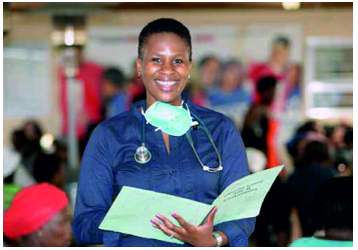 Helping each of them on their road to recovery is 31-year-old senior medical officer Funeka Bango.
Helping each of them on their road to recovery is 31-year-old senior medical officer Funeka Bango.
Vuk’uzenzele paid a visit to the clinic recently to learn more about this inspirational woman, who is making a difference in the lives of her patients.
In response to the growing epidemic of drugresistant tuberculosis (DR-TB) in Khayelitsha, the Western Cape government, the City of Cape Town and Doctors Without Borders got involved in a pilot project to provide treatment to DR-TB patients at a primary care level in 2007.
Khayelitsha has one of the highest burdens of HIV infection and TB in South Africa and the world.
To bring solace to the community, the Ubuntu HIV Clinic provides residents with the best possible HIV and TB care and treatment, antiretrovirals (ARVs) and health screenings. The Ubuntu HIV Clinic was also the first clinic in the country to roll out ARVs.
Dr Bango and her team are at the forefront of providing these services to those in desperate need of them.
Recalling the day she first joined the clinic in 2006, Dr Bango says, “When I entered the clinic for the first time I was shocked. There were people everywhere - sitting, standing and lying on the floor. People were really sick but now when you walk around our clinic you will see people are healthier. The first few months were extremely hectic but this is where I am supposed to be. I’ve found my calling.”
She administers ARVs and treats patients with HIV/AIDS and TB. In the past six years Dr Bango has seen visible improvements in her patients, thanks to the ARVs that have changed their quality of life.
The Ubuntu HIV Clinic sees patients streaming in from all over the province for treatment, with close to 7 000 patients visiting the clinic every month.
To assist with the patient overload a club for stable patients was created. Club patients are those who are maintaining and managing the disease well.
They get screened, scripted, educated on administering the ARVs themselves and receive a two-month supply.
“If we did not start the club, these patients would have to wait for hours for treatment,” says Dr Bango. The club helps the clinic provide services and treatment to patients on a larger scale daily.
Working with sick patients comes with its fair share of highs and lows, admits Dr Bango. The lows, she says, are hearing the struggles her patients face each day but the highs are seeing people get healthy and able to continue with their lives.
Despite the improvements in patients on ARVs, Dr Bango says there is still a huge problem of behaviour that needs to be addressed.
“It is very difficult to change behaviour and we as doctors can’t fight that battle alone. By the time we see a patient it is too late, they have already contracted the virus. We need parents, teachers and community leaders to come to the party and play their role in fighting HIV.”
“People only rely on government to fight the scourge. Government has come to the party with breakthroughs in research, new hospitals and clinics are being built, the implementation and introduction of the National Health Insurance, HIV Counselling and Testing Campaigns and getting more people on ARVs, but communities must now step up and play their part too.”
Communities and families need to lead by example and change their behaviour in order to fight HIV/AIDS, she adds.
Dr Bango lives by the motto, “Dare to accomplish big things by making a difference to others”.
With a medical degree, a Diploma in Advanced Health Care Management and another in HIV Management under her belt, Dr Bango is still pushing herself to ensure she is armed with the best knowledge in her field. She is currently completing her Master’s degree in Public Health at the University of Cape Town.
For more information on the Ubuntu HIV Clinic contact it on 021 364 9836.
Building a career after matric Education
Building a career after matric Education sadminIf your matric results do not meet the requirements for university entry, do not despair. You can still pursue other avenues to better your life such as learnerships, apprenticeships and Further Education and Training (FET) colleges.
Learnerships
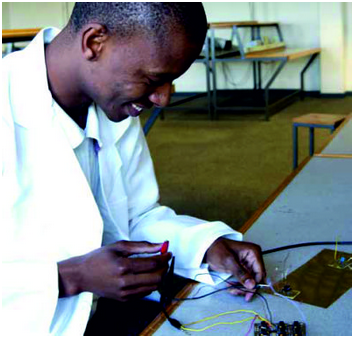 A learnership is a training programme available for people who are unemployed, school leavers, matriculants and college graduates, among others.
A learnership is a training programme available for people who are unemployed, school leavers, matriculants and college graduates, among others.
It is a work-based learning programme leading to a nationally recognised qualification. The qualification is related to an occupation, e.g. construction work, healthcare work, IT technician or electrician.
Some learnerships do not require you to meet any entry requirements but others only admit candidates with a Grade 12 certificate.
A learnership combines a structured learning component with practical work experience you will acquire from the company, government department or small business you work for.
You don’t have to pay to be a part of learnerships as they are funded by the Sector Education and Training Authority (SETA).
Learnerships pay an allowance intended to cover the cost of expenses such as travel and meals.
During the learnership, you will have to complete assignments, projects, practical tasks, demonstrations and write tests. You will be formally assessed in the classroom and workplace, meaning you will be tested in some way.
If you successfully complete all these assignments, you will be awarded a qualification that is recognised throughout the country. You will be given an official certificate that will state the qualification, which will indicate the area in which you have developed skills during the learnership.
Learnerships are registered with the Department of Higher Education and Training. You can also contact your nearest Labour Centre or provincial Department of Labour office to register on the Unemployed Persons' Service. You could also check the SETA websites for more information on what learnerships are available.
Apprenticeship
An apprenticeship is another avenue to pursue that is similar to a learnership but pays more attention to technical trades such as welding, plumbing, fitting, plastering and mechanics. An apprenticeship is an agreement between an apprentice (learner) and an employer for a certain period of time during which the apprentice works and receives training in the workplace.
Unlike learnerships, apprenticeships are not aligned to the National Qualifications Framework. The training is formal and structured and takes place at a workplace. An apprentice is expected to undergo a trade test before becoming a qualified artisan.
Those entering apprenticeships should at least be 15 years of age. Each sector, such as the transport or manufacturing and engineering sector, has different approved conditions of apprenticeship regarding entry requirements and so on. More information on apprenticeship requirements can be obtained from the relevant SETAs. Enquire at your nearest Labour Centre about these.
FET colleges
FET colleges are the perfect place to look to if you are into technical trades. Last year, government increased funding to FET colleges as a demonstration that more needs to be done to address the scare skills and increase the number of artisans in the country.
Minister of Higher Education and Training Blade Nzimande says government would like to see FET colleges as institutions of choice in rolling out skills development on a larger scale. Currently, there are 50 FET colleges across the country.
For more information contact the Department of Higher Education and Training call centre on 0800 872 222 or 012 312 5911.
Matric pupils rise above challenges to achieve success
Matric pupils rise above challenges to achieve success sadminThe 2012 National Senior Certificate exam results showed an increase in the national pass rate, indicating that efforts put in place by the Department of Basic Education are bearing fruit.
The national pass rate for the matric class of 2012 was 73.9 per cent, an increase of 3.7 per cent from the 2011 results.
Limpopo, despite facing challenges with delays in the delivery of textbooks, produced the highest number of top achievers in the country, with 15 of the 27 best performing matriculants coming from the province.
The province also achieved a 66.9 per cent pass rate in 2012, up from 63.9 per cent in 2011.
Ponani Mabunda, who matriculated from Nkwangulatilo Education Centre in Giyani, is among those in Limpopo who excelled, bagging seven distinctions. She attributed her success to her school and parents.
“I give the thumbs-up to our school because we had everything that a Grade 12 learner should have and more. My parents also supported me and made sure they provided a conducive environment for me to study in so that things like TV didn’t disturb me,” she explained.
Mabunda got distinctions in Xitsonga, English, mathematics, life orientation, agricultural sciences, life sciences and physical science. She intends to study medicine at the University of Stellenbosch.
 Belinda Likhwaimana, 18, from Thengwe Secondary School in Mutale, Limpopo also achieved seven distinctions.
Belinda Likhwaimana, 18, from Thengwe Secondary School in Mutale, Limpopo also achieved seven distinctions.
“I worked very hard from the beginning of the year until the last day of our exams. I never had time to play as I attended morning classes, afternoon classes and special classes on Saturday and Sundays just to make sure that I got distinctions in all subjects,” she said.
With distinctions in accounting, economics, mathematics, physical science, Tshivenda, English and life orientation, the teenager said she is ready to face new challenges at the University of Cape Town, where she will study for a Bachelor of Commerce (Accounting) degree.
On the other end of the country, 18-year-old Nondumiso Mkhize of Nkungumathe in Nkandla, made her school, village and family proud by getting distinctions in mathematics, English, isiZulu, life orientation, physical science, geography and tourism.
She has been accepted at the University of KwaZulu-Natal to study medicine.
“Since I was young I was always the one looking after people at home. This is what drove me to want to pursue medicine,” said Mkhize. She comes from a family of 11 and her grandmother is the family’s sole supporter thanks to her state pension.
“I have had to rise above many challenges. It was hard going to school and not having the correct books.
“At times there was no food at home. I became determined to achieve my goals and look forward to the future,” she said.
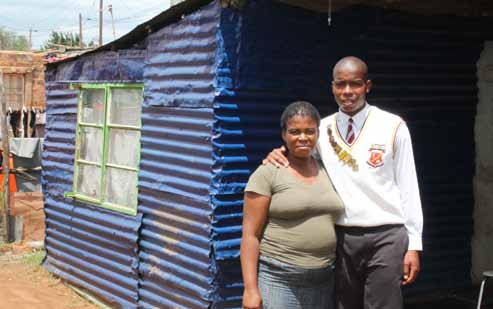 Eric Moloko, meanwhile, made Mpumalanga proud when he achieved distinctions in all his subjects.
Eric Moloko, meanwhile, made Mpumalanga proud when he achieved distinctions in all his subjects.
The 18-year-old excelled in isiZulu, English, mathematics, life orientation, electrical technology, engineering graphics and design, and physical science.
Moloko, who lives in a three-room shack in Mhluzi township, with his mother and two siblings, was abandoned by his father when he was young.
“I want to send a message to young people out there that regardless of the conditions and situation you come from, it is possible to be an achiever just like me,” he said.
Moloko’s proud mother, Elizabeth Shabangu, 41, works at Steelcrest High School in Middelburg as a cleaner. “He promised he would study hard so he could get a good job, buy me a house and get me out of the shack,” she said.
Moloko has received a bursary from the Exarro mining company to study mining engineering at University of Pretoria.
Land restitution yields success for North West communities
Land restitution yields success for North West communities sadminSince 1994 government has transferred about three million hectares of land back to black people in an effort to address the negative impact of the Native Land Act of 1913.
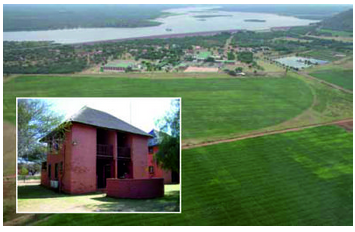 The Act reserved 87 per cent of the land for white South Africans while evicting blacks from their ancestral land.
The Act reserved 87 per cent of the land for white South Africans while evicting blacks from their ancestral land.
Among the successful beneficiaries of land restitution are communities that were evicted from their ancestral land in the Maile, Mmamerotse, Tantanana, Bethanie, Phalane and Jericho villages, outside Brits in North West. The evictions here took place in 1922, 1923 and 1963.
In 1995, when government invited people to launch claims, the six villages joined hands to launch one claim because the land they were evicted from was now called Tweerivier 197 JQ.
In 1999 they succeeded with their claim and government bought back 6 100 hectares of land on their behalf. Efforts by community members to return to their ancestral land were delayed by infighting. Other members from different villages launched a counter claim and that distracted the process.
According to community member Charles Moagi, government told them that until they sorted out their differences, no land would be handed over to them. “The counter claim by others and the infighting dealt the two groups a blow as both of them could not receive the land they had claimed,” he said.
In 2004 the two groups decided to come together, formed a Communal Property Association (CPA) and launched a joint claim. That’s when things started to move in the right direction. They agreed on the name Dikgatlhong for the CPA and came up with a memorandum of agreement binding them to work together.
“Dikgatlhong was chosen because the name itself means the coming together and it united the two groups. We realised that the infighting wasted a lot of energy and time, hence we came together,” said Moagi, chairperson of the Dikgatlhong CPA, which represents 203 families.
The CPA manages the land, which is divided into various sections, on behalf of the families. Dikgatlhong Game Farming and Lodge occupies 2 000 hectares, irrigation crops occupies 3 340 hectares, and the cattle farming project occupies 565 hectare - all of which was bought by the Department of Rural Development and Land Reform for the community. The farm produces maize, soya beans, sunflowers and vegetables.
“Though the land belonged to our ancestors, government wanted us to explain in detail what we wanted to do with the land and that’s when we came up with what we called the master plan. That plan explained in detail what we wanted to do.
“It spoke about our plans to lease some of the land, to plough some of the land and to involve our young people in the running of the lodge,” explained Moagi.
He added that to prevent the possibility of the farm collapsing, they established a good working relationship with the previous occupants of the farm. “We retained the skilled people who were working on the farm to ensure that there was continuity and skills transfer.”
The lodge created 25 direct jobs and employed locals from different villages. It created part time jobs and there’s also talk of starting a bursary scheme for young people who want to pursue a career in farming, game and wildlife conservation.
Moagi said the secret of Dikgatlhong’s success was that they did not antagonise the previous owners and occupants of the farm. He warned other CPAs not to fall into the trap of alienating the previous owners of land, as this would prevent skills transfer to the new occupants.
For more information contact the Department of Rural Development and Land Reform on 012 312 9300.
Elderly farmer reaps fruits of his labour
Elderly farmer reaps fruits of his labour sadminAfter spending years working as a waiter at the Barclays Bank canteen and later at Anglovaal Mining, Daniel Mabuza says his biggest regret is not quitting sooner to start his own project. Mabuza, 70, retired from the Johannesburg mine in 2003 and returned to his home village of Ezekhaya, about 50km outside Tzaneen, Limpopo.
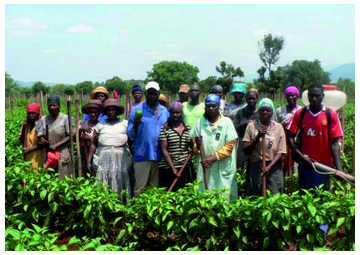 He knew then that his pension money would not sustain his family for long, so Mabuza risked all his earnings by investing in an agricultural project.
He knew then that his pension money would not sustain his family for long, so Mabuza risked all his earnings by investing in an agricultural project.
Ten years down the line, that project now employs 20 permanent workers and a further eight seasonal workers.
“My biggest regret is that I wasted a lot of time working for other people. I wish I had quit my job earlier and became a farmer while I was still a young man,” he says.
Mabuza adds that had he started earlier, he could have used his youthful energy to benefit his family and community.
He began the agricultural project in 2003 taking advantage of the available 56 hectares of land he inherited from his late father.
“Then I was just focusing on poultry and goat farming, and also ploughing on two hectares of land.”
It was only in 2009 that he registered a cooperative through the help of the Small Enterprise Development Agency (Seda).
The cooperative, known as Phangweni's Eden Farm Cooperative, now supplies tomatoes, butternut, green pepper and sweet potatoes to many clients, including retail giant Massmart.
“Seda helped us register the cooperative and also trained us in bookkeeping. They have been helpful in marketing this business. It was through their facilitation that we got a tractor from the Department of Trade and Industry (dti). The dti also promised us more irrigation pipes and two water tankers,” says Mabuza.
The Department of Agriculture also installed an irrigation system on 2.5 hectares of land, which Mabuza is grateful for.
“The support from the department is very encouraging. Not only did they assist with the irrigation system and the demarcation of hectares, but they also gave us a borehole, a generator, compost and a fence, though not yet erected,” he adds.
The department’s help came through at exactly the right time.
“Part of the requirement of the deal we signed with Massmart in 2011 was that we should be able to plough on a five hectare land and the department came through for us by installing the irrigation system. We could only afford to install the system on 2.5 hectares of land, so their support is invaluable. They continue to offer advice and constant monitoring,” he says.
Phangweni Eden Farm Cooperative’s initial deal with Massmart was for one year but the cooperative has since signed a three-year deal with the company.
Mabuza admits though, that it is not always smooth sailing.
“We don’t have a shelter in this farm which is quite challenging for us when it rains. We also need assistance with an additional borehole and electricity connection,” he points out.
Maria Shokane, a 39-year-old mother of two says the skills she gains working on the nearby farms are proving useful.
“Every day is a learning day and we love it. The project has given us a chance to feed our families,” she adds.
*Odas Ngobeni works for GCIS in Limpopo.
Rape: what to do when it happens
Rape: what to do when it happens sadminVictims of rape are often unsure how to react, what to do and where to go. If you have been raped, you must report the case to the South African Police Service (SAPS) or to a Thuthuzela Care Centre (TCC) at a clinic near you as soon as you can.
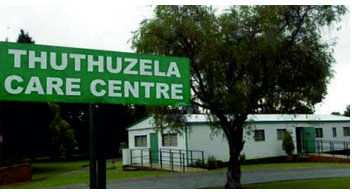 Rape refers to a situation in which any person sexually penetrates you, using their genital organs or any object, without your consent.
Rape refers to a situation in which any person sexually penetrates you, using their genital organs or any object, without your consent.
It is important to note that rape is not gender- specific and includes all forms of sexual penetration.
You must not shower, bath, eat, drink, wash your hands or brush your teeth immediately after being raped. You must wait to be examined by a doctor first.
At the SAPS station you will be supported by a female official and taken to a victimfriendly waiting room.
Your docket will be allocated to the Family, Child and Sexual Offences Unit of SAPS, who will collect the necessary evidence. Forensic evidence such as DNA is especially crucial when dealing with under age victims.
The investigating officer has to visit the scene of the crime to seize possible exhibits such as used condoms, bed sheets, clothing, etc.
Thuthuzela Care Centres
TCCs are based at primary healthcare centres such as public hospitals or clinics close to communities where rape happens frequently.
These centres have been up by the National Prosecution Authority’s Sexual Offences and Community Affairs to stop women and children from being victimised and to improve prosecution in cases involving sexual offences, maintenance, child justice and domestic violence.
TCCs also aim to ease the pain of rape survivors, who are often retraumatised as they tell their stories or provide evidence to investigators and counsellors, and help cut down the time it takes to finalise cases.
What to expect
When you go to a TCC you will be offered:
- Immediate trauma counselling.
- Medical examination.
- Post-exposure medication to prevent HIV infection.
- Referral for counselling.
The TCC staff will give you support from the moment you report the case.
The site coordinator will supply you with a safety plan consisting of all relevant contact numbers of the investigating officer, the TCC and the case docket details. Some TCCs remain open daily for 24 hours.
Medical examination
You will be examined by a doctor and informed about the procedures that will be performed. You will be asked to sign a consent form for medical examination and blood specimens. The doctor will look for forensic evidence, which will be used in court to prove that you were raped by a particular person.
If the medical examination takes place within 72 hours of the rape, DNA tests will be done and post-exposure drugs are administered, after which you are offered the opportunity to take a bath or shower and change into clean clothes.
The investigating officer at the centre will then take your statement. You will receive the appropriate medication and a follow-up date for further medical treatment before being taken home. The TCC will also put you in touch with the prosecutor who will contact you within 21 days of reporting the matter.
Court preparation
All children must be assisted by an intermediary to testify in court. A court preparation officer will introduce you to the court environment and will also explain the intermediary system to you, if it is a case where an intermediary may be used.
On the day of the trial, you will be kept in a friendly waiting room, removed from all other witnesses and accused persons.
Rape is a serious and violent crime. It is up to you as a victim to report the crime and make sure that the rapists are arrested.
For more information contact the National Prosecuting Authority on 012 845 6000.
Music has offenders singing a new tune
Music has offenders singing a new tune sadmin"I was aggressive and angry most of the time. Music changed my life for the better.”
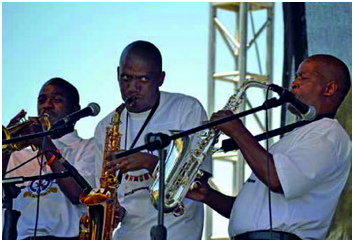 Those were the words of Thulani Mpongoshe, a 31-year-old offender, shortly before he led his gospel group’s performance at the Department of Correctional Services’ National Offender Jazz Festival in Bloemfontein recently.
Those were the words of Thulani Mpongoshe, a 31-year-old offender, shortly before he led his gospel group’s performance at the Department of Correctional Services’ National Offender Jazz Festival in Bloemfontein recently.
The event, under the theme Correction, Rehabilitation and Reintegration through Music, saw about 200 offenders showcasing their dance and musical talents in front of a 1 500-strong audience.
And the gifted offenders had the crowd captivated throughout the festival, with community members and officials from the department singing along and hitting the dance floor. Correctional Services Minister Sibusiso Ndebele was one of the many guests enjoying the music.
“Today, as part of rehabilitation through the arts, we will witness rehabilitation in action by inmates from correctional centres across the country. It is indeed a great day when a section of our offender population, those talented in music and willing to showcase their talents as part of the rehabilitation process, come forward to say, ‘We are indeed changing; we are becoming better citizens’,” Minister Ndebele said.
The Minister’s words were echoed by Mpongoshe, who said music had transformed his life. “I once believed I was born to be cruel,” he recalled.
Mpongoshe said his negative thinking changed after the department provided musical instruments to offenders and he was introduced to gospel music.
The talented keyboard player and lead vocalist believes that music helped him get a transfer from a maximum to medium correctional centre in 2010.
Offenders are rewarded for their good behaviour, eagerness to learn new skills and willingness change their ways.
While at the maximum centre in East London, Mpongoshe was the leader of the group From Crime to Christ.
When he was transferred to the Mdantsane Medium Correctional Centre he resuscitated Masibon’ukukhanya, also a gospel group. Mpongoshe has never looked back.
“Music gave me hope in myself. I suddenly found myself not wanting to do bad things,” he said.
Even the death of his mother, who was killed in a car accident on her way to visit him in 2008, did not deter Mpongoshe.
In fact, after the accident he wrote a song titled A Song for Mama, as a tribute to her.
Motivated by the women in the audience, his group performed this moving song at the festival.
Still excited after his group’s performance, offender Siya Mashego Maphiri, 31, said music helped him interact with people, something he found hard to do in the past.
A bass guitarist for the Tswelopele Correctional Centre-based group Sharing Through Music (STM), Maphiri believes music has rehabilitated him.
“Music makes the heart well. It helps me get along with people,” he said.
Maphiri also considers education as the key to rehabilitation.
As a result, he is now a first year graphic design student and wants to excel so he can get a good job when he completes his sentence.
Another offender Enslin Scholtz said: “Music has changed me. I will take music with me when I leave the correctional centre.”
The offenders expressed their desire to further develop their musical talent when they were released from correctional centres.
Correctional Services has partnered with the Department of Arts and Culture to use the arts as a vehicle to change offenders’ ways.
*Luvuyo Mjekula works for the Department of Correctional Services.
For more information contact Correctional Services on 012 307 2281.
Jobs Fund billions to tackle unemployment
Jobs Fund billions to tackle unemployment sadminSouth Africa’s R9-billion Jobs Fund, announced by President Jacob Zuma in his State of the Nation Address of 2011, has launched its third call for funding proposals.
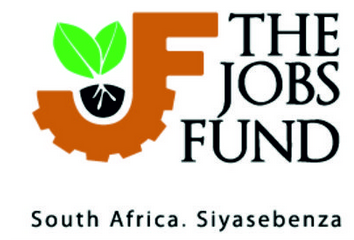 The fund, which aims to help the government create 150 000 jobs by 2015, has to date approved funding for 54 projects and initiatives totalling a massive R3 billion.
The fund, which aims to help the government create 150 000 jobs by 2015, has to date approved funding for 54 projects and initiatives totalling a massive R3 billion.
The Jobs Fund, managed by the Development Bank of Southern Africa and supported by the National Treasury, aims to tackle the country’s unemployment problem by finding new ways of doing business that create new, permanent jobs in South Africa.
The intention of The Jobs Fund is to co-finance projects by public, private and non-governmental organisations that will significantly contribute to job creation.
The third call for proposals is a request for applications from initiatives in the enterprise development and infrastructure investment categories.
Enterprise development initiatives are those that develop new commercial approaches to long-term job creation in ways that combine profitability and high social impact.
This includes initiatives that can act as channels of support for smaller enterprises or benefit them indirectly.
Infrastructure investment initiatives include those that provide important missing infrastructure that creates trading opportunities, improves access to markets, boosts the business environment for enterprises and sparks employment linked investment.
Who can apply?
The fund will consider co-financing application proposals from private companies, non-government organisations, government departments and municipalities.
How to apply?
Guidance on how to apply and an online form can be found on The Jobs Fund website - www.jobsfund.org.za
You can register on the website to create an application and can work on your application online until the closing date. Applications will close at 5pm on 15 March 2013.
Application eligibility and criteria
Some elements applications should include are innovation, a clear indication of how jobs will be created, as well as show that significant results will be met through a Jobs Fund grant.
A full list of the eligibility and impact criteria can the downloaded from The Jobs Fund website.
Application process
There will be a two-stage application process. In stage one the applicant submits a concept application. This is assessed against all applications in that funding window or category. If the application is successful, the applicant is invited to submit a full application in the second stage for consideration. Only if the applicant competes successfully in the second stage will a grant be allocated. All funding decisions are made by an independent Investment Committee.
How long will it take to process an application?
The assessment of applications starts on the day that the call for proposals closes. The fund has set a target of 110 days for the full assessment process, however those applications that are not eligible will be informed by day 15.
Those who did not make it past the first stage should know by day 55 and those who are not successful at the second stage will be informed by day 110.
For more information on the Jobs Fund, contact us on: Website: www.jobsfund.org.za; Call Centre: 086 100 3272
Top recognition for up-and-coming woman scientist
Top recognition for up-and-coming woman scientist sadminEmerging scientist Charlotte Maserumule has received a stamp of approval for her dedication to her field. The student researcher, with the Council for Scientific and Industrial Research (CSIR), was one of the winners at the South African Women in Science Awards recently.
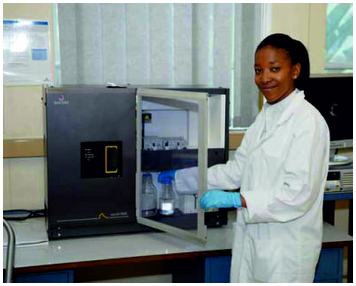 She received the Master’s Fellowship Award and said it was one she would cherish for the rest of her life.
She received the Master’s Fellowship Award and said it was one she would cherish for the rest of her life.
“I’m sure that I’m in very good company and I’m honoured to be counted among this group of remarkable, young women scientists-in-training.”
Maserumule is pursuing a Master of Science degree in Medicine with the University of Cape Town.
She is currently conducting her research at the CSIR’s Emerging Health Technologies Platform under the guidance of Dr Makobetsa Khati.
Her Master’s degree focuses on using technology to develop a simple, rapid and affordable diagnostic kit for Tuberculosis (TB) that can be used at clinics and hospitals.
Maserumule also holds a Bachelor of Science (BSc) degree in Medical Sciences from the University of Pretoria and BSc Honours in Medical Cell Biology from the University of the Witwatersrand.
“As a young emerging scientist, winning the award is something of a stamp of approval that you are doing something right and particularly relevant in the South African context,” she says.
Her current research interests are in molecular biology, which deals with cells and a person’s DNA; nanotechnology, which involves creating new materials such as medicine, electronics, biomaterials and energy production; and biophotonics, which uses light and lasers, to study things like the human tissue.
“My work in the TB project affords me the opportunity to do science that has potentially tangible medical applications and that makes a big difference in people’s lives,” Maserumule adds.
She has plans to further her career in applied science and hopes to become a role model for young women, particularly those growing up in the rural areas, by inspiring them to flourish beyond the limitations of their beginnings.
Maserumule is not new to awards, having also received an award from the KwaZulu- Natal Research Institute for Tuberculosis and HIV Collaborative Grants Programme for her excellent work in developing TB detection probes for potential use in point of care diagnostics.
The South African Women in Science Awards are hosted annually by the Department of Science and Technology to recognise and reward the achievements of leading South African women scientists and researchers.
With these awards, the department aims to profile women scientists and researchers as role models for younger scientists and researchers; as well as encourage and reward younger women who are starting their careers as emerging researchers and scientists
IDC helps timber company uplift rural community
IDC helps timber company uplift rural community sadminIn 2004 Annetjie Swart quit his job as a mill manager at Sappi to set up his own timber company on the outskirts of Sabi in Mpumalanga.
The company, Elegant Line Trading, was doing well but often experienced cash flow problems preventing it from growing further.
It was only in 2010, after receiving finance from the Industrial Development Centre (IDC), that the company started to realise its potential.
Following an increase in demand for his products, Swart approached the IDC, a national development finance institution under the supervision of the Economic Development Department that was set up to promote economic growth and industrial development.
“We needed to replace ageing equipment which turned out to be a huge cost factor in the production chain. Getting rid of unnecessary costs by obtaining modern plant machinery is critical to a local company’s survival because we are competing against cheap imported wood products,” said Swart.
He explained that before IDC stepped in, his company experienced severe cash flow challenges, which put it on the brink of closure.
The IDC’s funding helped the company with the new machinery, which led to the creation of jobs since demand for products had grown.
Head of IDC’s Forestry and Wood Strategic Unit Lizeka Zwane explained that Elegant Line’s funding application fell within the objectives of government’s Industrial Policy Action Plan, which aims to promote the replacement of older sawmilling technology with modern, highly efficient technology.
“The IDC funding facility has not only helped to reduce production costs but has lead to creation of new jobs,” said Zwane.
Today the company employs 120 people from the rural community on a permanent basis. It supplies timber to the furniture industry and produces bed bases and pallets. The waste from production is chipped for pressed board.
Swart’s company is one of the biggest employers in Nelspruit, a region battling severe unemployment.
Elegant Line Trading’s presence has been a major boost for the local economy as it supports close to 85 families, explained Swart.
“The employment number surges during peak season when we hire more people on a contract basis to help us ramp up production,” he said.
Zwane was very confident about the timber industry’s prospects for growth, saying the industry accounted for about 200 000 jobs.
“For us to create more jobs in rural areas, we have realised the need to create and nurture companies like this one,” she added
For more information on the IDC contact the call centre on 0860 693 888 or email callcentre@idc.co.za
Clinical associates take a load off doctors
Clinical associates take a load off doctors sadminThe rise of a new health profession in South Africa is breaking new ground by addressing the shortage of doctors, developing skills and creating jobs.
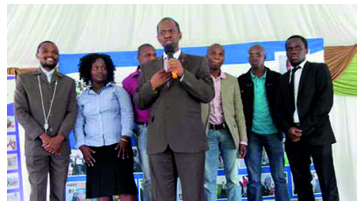 Clinical associates are professionals trained to perform some of the less demanding duties of doctors and are helping curb the county’s health challenges.
Clinical associates are professionals trained to perform some of the less demanding duties of doctors and are helping curb the county’s health challenges.
A clinical associate is qualified to assess patients, make diagnosis, prescribe appropriate treatments and do minor surgical procedures under the supervision of medical officers.
The graduates are positioned above nurses and just below doctors.
During the provincial launch of the programme held at Osindisweni Hospital in KwaZulu–Natal recently, Health MEC Sibongiseni Dhlomo said the introduction of this mid-level category of professionals was part of the seven foundations of South Africa’s Human Resource for Health (HRH) model launched by the national Department of Health.
“It is also part of the department’s efforts, started in 2004, to explore different avenues of increasing the number of skilled healthcare providers in underserved provinces,” explained MEC Dhlomo.
A total of 47 students were selected nationally. The seven chosen from KwaZulu-Natal have already been placed in the rural hospitals of Hlabisa, Ceza, Mosvold, Charles James Memorial, Greytown and Osindisweni.
Mondli Maphumulo, 26, was part of the very first group of clinical associates to graduate. He completed his Bachelor of Clinical Medical Practice degree at the University of Pretoria and started practising at the beginning of 2012.
Maphumulo’s story is that of many South African youth, who have had to overcome the challenges of unemployment and poverty. “I was able to beat the odds. I come from very rural KwaZulu-Natal, in a place called KwaMaphumulo. My family could not help me further my studies. I was able to get the bursary and through hard work and perseverance I was able to succeed.
“I am very excited to have been among the first group of clinical associates to graduate. Our job eases the workload of doctors and nurses. Being part of this programme is an indication that South Africa is one step further in developing its health system,” he said.
The bubbly Maphumulo, who is now even referred to as doctor by some of his unknowing patients, said it was his dream to study medicine but he did not qualify.
He added that helping people, particularly those who were sick, was his passion. Since Maphumulo began his duties at Osindisweni Hospital he has worked in various departments including the antiretroviral clinic, theatre and emergency unit.
He encouraged other youth to be part of the project because it had great prospects for growth.
The University of Pretoria, University of Witswatersrand and the Walter Sisulu University are offering the Bachelor of Clinical Medical Practice degree required to become a clinical associate.
Dhlomo said for the 2012/2013 financial year 668 students have been offered bursaries and a budget of R107 million was set aside.
For more information contact the Department of Health on 012 395 8000.
Old tyres get a new lease on life
Old tyres get a new lease on life sadminOld tyres may no longer be discarded at will by manufacturers and consumers. All companies in South Africa that manufacture or import tyres will have to contribute to the management of old tyres in an effort to prevent them from polluting the environment, while also creating thousands of jobs.
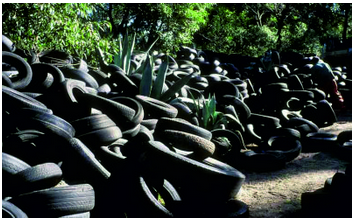 Each year more than 200 000 tons of tyres in South Africa become waste. About 11 million of these are dumped illegally or burnt to retrieve the steel wire in the tyre. This figure is estimated to increase by around 9.5 per cent every year.
Each year more than 200 000 tons of tyres in South Africa become waste. About 11 million of these are dumped illegally or burnt to retrieve the steel wire in the tyre. This figure is estimated to increase by around 9.5 per cent every year.
Only five per cent of the waste tyres are reused, recycled or burnt for the small amount of metal that can be recovered from them. The bulk is left to take up space at illegal storage sites throughout the country, causing fire hazards and a breeding ground for mosquitoes.
Regulations
To tackle the problem, the Department of Environmental Affairs developed the Waste Tyre Regulations, which came into effect in June 2009, and gives producers an opportunity to decide how they want to manage and finance the tyres once they become waste.
Minister of Environmental Affairs Edna Molewa has also published the Integrated Industry Waste Tyre Management Plan (IIWTMP), which is overseen by the Recycling and Economic Development Initiative of South Africa (REDISA) for immediate implementation.
The REDISA plan was gazetted on 30 November 2012 for immediate implementation, giving producers until 30 January 2013 to register.
Currently, REDISA is the only approved IIWTMP in the country. All tyre producers registered with REDISA must immediately comply with the approved IIWTMP and those that are not registered must do so by 30 January 2013. The IIWTMP also promotes job creation and is aimed at creating close to 15 000 jobs, which will include the collection, transportation, storage and processing of waste tyres.
Management
Funding for the plan will come from a tyre levy. REDISA will charge tyre manufacturers and importers a levy of R2.30 per kilogram. Among others, the funds will be used to create small- to medium-sized businesses related to the collection, transportation, storage and recycling of the waste tyres.
The plan is intended to ensure that when it comes to the management of waste tyres, the disposal of tyres is the last resort and recycling, re-use and recovery of energy are the preferred options.
This will control the impact waste tyres have on the environment, which include health risks associated with mosquito and vermin breeding, as well as fire hazards and air pollution from the burning of tyres.
This approach will extend the life span of landfill sites, especially since land for the development of these sites is scarce. The plan is also aimed at establishing and encouraging a vibrant recycling sector, through research and development initiatives. Products that can be derived from recycling tyres include rubber, oil, bricks and tiles.
For more information contact the Department of Environmental Affairs on 012 310 3911.
New academy to accelerate automotive industry
New academy to accelerate automotive industry sadminA new academy aimed at tackling the skills shortage in the automotive industry is currently under construction.
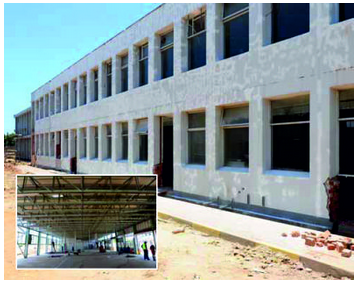 The Gauteng Provincial Government has partnered with Nissan South Africa to build the Gauteng Automotive Training Academy in Rosslyn, Pretoria where people will be trained in areas related to vehicle assembly and repairs. The academy is expected to train about 1 000 students a year and will offer programmes such as welding, spray painting, vehicle assembly and service maintenance.
The Gauteng Provincial Government has partnered with Nissan South Africa to build the Gauteng Automotive Training Academy in Rosslyn, Pretoria where people will be trained in areas related to vehicle assembly and repairs. The academy is expected to train about 1 000 students a year and will offer programmes such as welding, spray painting, vehicle assembly and service maintenance.
According to Gauteng’s MEC for Economic Development Nkosiphendule Kolisile, the project is an indication of the provincial government’s commitment to growing the automotive industry.
“The academy is part of the collaborative efforts by government and the automotive industry to overcome skills shortage for vehicle assemblers, automotive component manufacturers, dealer and after-sales support network, as well as informal and mechanical repairers. The academy will offer both theory and practical training for students,” MEC Kolisile explained.
The collaboration with Nissan highlighted the confidence the company had in the province, he added.
“The institution will also house a world-class automotive manufacturing training simulator to raise the assembly process capabilities of Nissan South Africa employees in preparation for the production of a new pickup truck due for launch in mid-2014.”
The production of the new pick up truck will see Nissan investing R1 billion and creating 800 direct jobs in South Africa.
The partnership also had the potential to stimulate young people’s interest in the industry and expand opportunities in the sector, MEC Kolisile added.
Nissan managing director Mike Whitfield stressed the importance of skills development in the industry.
“Skills development is vital to the sustainability of the South African auto industry and our involvement in the Automotive Training Academy demonstrates our commitment to the industry’s long-term survival,” he said.
According to the Automotive Industry Export Council, in 2010 more than 28 000 people were directly employed in the automotive manufacturing industry. About 200 000 were employed in retail and aftermarket activities while about 6 600 employed in the tyre manufacturing industry.
Nissan has donated land and two buildings to the training academy, while the Gauteng Department of Economic Development will focus on refurbishing the buildings. For now, the site is dominated by dust, rubble and noise as workmen toil furiously to meet the deadline. Inside, workers drill and hammer ceilings into place while outside earth moving machines create their own roar as they dig holes and remove rubble. Construction at the site is expected to be complete by May 2013. John Nyalunga, one of the construction managers, expects the completed academy be an impressive structure.
“There will be three buildings once the academy is completed. Currently we are refurbishing two buildings. The first block, where the offices and classroom will be situated, is almost complete. The second building, which will be the workshop, still has to be extended by 12 metres, while the third building that will be built will be the paint shop,” said Nyalunga.
The Automotive Industry Development Centre (AIDC), an agency that falls under the Gauteng Department of Economic Development, will run the academy. Its mandate is to partner with the automotive industry to become globally competitive.
For more information on the academy contact 012 564 5310, email autoacademy@aidc.co.za or go to AIDC’s website - www.aidc.co.za
Taking business from the boardroom to the kitchen
Taking business from the boardroom to the kitchen sadminIn 2011 Mandisa Nkamba Kadalie swapped her designer suits and stilettos for an apron and has not looked back since. The former Absa black business development consultant says it has always been her dream to own a place where she could cook, host and serve food to her clients.
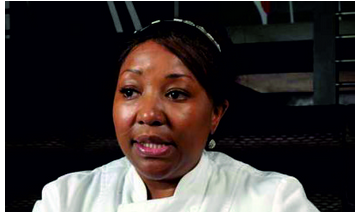 Today she owns a flourishing chain restaurant, Karoo Cattle & Land, at Rosebank Mall. Since opening its doors in December 2011, the restaurant has created 33 jobs for 18 kitchen staff and 15 waiters and waitresses.
Today she owns a flourishing chain restaurant, Karoo Cattle & Land, at Rosebank Mall. Since opening its doors in December 2011, the restaurant has created 33 jobs for 18 kitchen staff and 15 waiters and waitresses.
Situated at The Zone at Rosebank Mall, the 579 square metre restaurant caters for an upmarket clientele. Artwork reflecting Karoo cattle cover the walls. Six small round tables with stools are outside, while inside dinner tables are neatly set with a mixture of white and brown overlays. There is also a VIP section and dance floor at the restaurant.
Kadalie has had to work hard to get the restaurant to where it is now.
“I had this dream from an early age. I remember writing proposals, letters and dreaming up names for my restaurant. I wanted to call it Silver Spoon but there was never that perfect time for me to get into that. I pictured a nice restaurant by the seaside and I knew that with more practise and ambition, I could do it,” she explains.
It was only after meeting Theodore Holiasmenos, entrepreneur and franchisor of Karoo Cattle & Land, that her plans began to take shape. He encouraged her to open the restaurant and gave her ideas on how to get started. After this meeting, she was filled with hope and vigour to make her dream a reality.
But to advance her plans, she needed strong financial backing. Holiasmenos pointed her in the direction of the National Empowerment Fund (NEF), an agency of the Department of Trade and Industry that provides financial support to small black businesses, and that was the start of a good relationship.
Kadalie approached the NEF with her dream and was asked to draft a proper business plan. After further consultation and drawing from her experience gained from consulting for small black businesses, she drafted a “killer business plan” that eventually secured her a R5.3 million loan from the NEF in June 2011. She and her franchisor identified a spot at Rosebank Mall and then further negotiated with the NEF. “We had to look at a range of aspects and one that bothered me was the cost of the rental because the location was in a mall.”
The NEF interrogated all aspects of her business plan, from location, viability, accessibility, menu, staff turnover and her readiness to run an upmarket restaurant.
Kadalie says her readiness and passion for owning a restaurant were the driving forces that secured her funding from the NEF.
Looking back after a year, she says she does not miss the expensive designer clothes or stilettos and she feels more comfortable wearing her apron and serving her patrons
For more information contact the National Empowerment Fund on 0861 843 633.
Public Protector’s investigation team gets a boost
Public Protector’s investigation team gets a boost sadminThe Public Protector South Africa has appointed 100 trainee investigators to help improve the speed and rigour of its investigations.
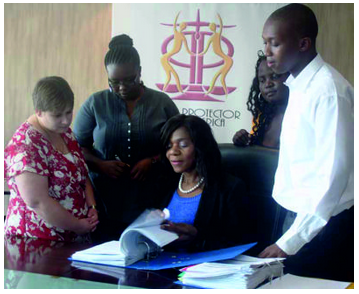 The Public Protector is an institution established to conduct investigations into complaints of improper conduct in all state affairs from members of the public.
The Public Protector is an institution established to conduct investigations into complaints of improper conduct in all state affairs from members of the public.
The investigators, who have been stationed at the institution’s 20 offices countrywide, were recruited late in 2012 in a bid to strengthen the office’s investigative capacity, pending Parliament’s approval of a proposed organisational structure.
In terms of the proposed structure, the Public Protector required the number of investigation staff, which stood at 137 at the time, to be doubled in order to match the office’s workload. In the financial year ending March 2012, the office processed 26 000 cases, of which 20 000 were received during the same period. This means on average, each investigator was handling around 400 investigations at a time. Out of the 26 000 cases processed, 16 700 were concluded.
Welcoming the trainee investigators based at her Pretoria office recently, Public Protector Advocate Thuli Madonsela told the trainees that it wasn’t only her office that expected a lot from them, but the South African public also had high expectations.
“We always say we are not swift and thorough enough because we don’t have as many people as we need … Your arrival here increases our establishment by 25 percentage points,” she said, noting that the recruits took the total number of staff members, including those from corporate support, from 300 to 400. She told the group that, as members of the Public Protector team, they had an important a role to play and the effectiveness of the office depended on each member of the team.
The Public Protector said the group has a pivotal role to play in ensuring that the office successfully serves as the conscience of the state in order to help guarantee fairness and opportunity for all.
The Public Protector urged the group to help ensure that the Public Service is not characterised by indifference, cynicism or selfishness. “Usually, when public money has been wasted, there is anger all round but when people have been treated badly the anger is not that much. You should inspire the Public Service to treat people with a sense of ubuntu,” she appealed.
The Public Protector thanked the National Treasury for responding positively to her office’s request for funds that eventually led to the recruitment of the trainees.
One of the trainees Boitumelo Motholo, a law graduate from the University of Witwatersrand, was excited at the opportunity to learn while helping to entrench South Africa’s constitutional democracy.
“I have always wanted to work for the Public Protector and contribute to the cause of bettering the public administration. I also see this as an opportunity to develop a strong sense of work ethic,” she said.
The trainees will be assigned their own cases under close supervision, working alongside experienced investigators, whose duties include, among other things, showing the beginners the ropes.
*Oupa Segalwe works for Public Protector.
If you need the Public Protector’s help call the toll free number on 0800 11 20 40 or the Customer Service Line on 012 366 7143.
Conference to put youth work in the spotlight
Conference to put youth work in the spotlight sadminYouth matters
South Africa will play host to the International Youth Work Conference on Education and Training of Youth Workers from 18 to 20 March 2013.
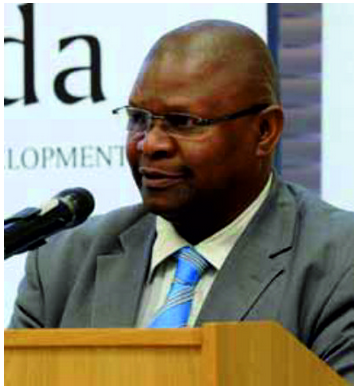 The conference will provide a platform for researchers, policy makers, government, academics and students to come together and talk about the importance of promoting and formalising youth work as a profession.
The conference will provide a platform for researchers, policy makers, government, academics and students to come together and talk about the importance of promoting and formalising youth work as a profession.
The international conference will be hosted by government in partnership with the Commonwealth Africa Regional Centre, the University of South Africa (Unisa) and the National Youth Development Agency (NYDA).
Investment in youth programmes is a necessity for South Africa, said Deputy Minister for Performance, Monitoring and Evaluation Obed Bapela.
“We need, as South Africa and the African continent, to really put in resources to invest in preparing these young people for their bright future. The youth are assets who will take the country forward and ensure that there is growth and development.
“If we don't do so, they are going to be too costly and are going to be a cost to society. Instead of developing the country, government will have to give them social grants, this is not how we want to develop our society.”
African leaders needed to set aside more money for youth programmes to equip young people for their future, he added.
Deputy Minister Bapela said that ignoring the plight of youth workers will have severe consequences in the decades to come.
Currently, only six universities in South Africa offer a ‘youth work’ qualification.
By formalising youth work as a profession it is hoped that education, training, increased research in youth development and the mastery of specialised knowledge will be achieved.
For its part, the NYDA is committed to facilitating skills and training programmes like the Education, Training and Development Practices Sector Education and Training Authority (ETDP SETA) accredited programmes for prospective youth workers and youth development foundations. The demand for these programmes continue to grow.
According to NYDA CEO Steven Ngubeni, the agency will be instrumental in creating a Youth Work Profession Council. The council will ensure that a code of ethics is developed and adhered to, youth workers are registered on a comprehensive database, youth workers receive continuous development, occupations are developed for the different levels of youth workers and career paths are developed.
Unisa’s principal and vice chancellor Professor Mandla Makhanya said Unisa recognises the need for higher education institutions to promote youth work as a profession and has backed the creation of a Diploma in Youth Development.
“Enrolments for this diploma come from many countries on the African continent and it is our hope that participation and enrolments will increase, especially once the profile of youth work is raised through the intended conference,” he said.
*Nawhal Kara-Foster works for the NYDA.
For more information on the conference contact the NY DA on 0800 52 52 52.
NYDA intensifies efforts to curb drug abuse
NYDA intensifies efforts to curb drug abuse sadminYouth matters
This year the National Youth Development Agency (NYDA), in partnership with the South African National Council on Alcoholism and Drug Dependence, will step up efforts to tackle drug and alcohol abuse among the youth.
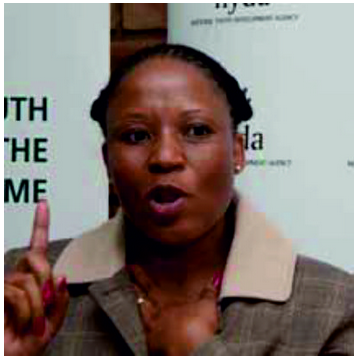 The NYDA funded the Drug Rehabilitation and Awareness Project, which will be implemented in the Western Cape and Northern Cape, provinces where substance abuse is rife. The project aims to train 700 peer counsellors from 35 schools in these provinces to refer learners in the early stages of substance misuse or abuse for professional counselling.
The NYDA funded the Drug Rehabilitation and Awareness Project, which will be implemented in the Western Cape and Northern Cape, provinces where substance abuse is rife. The project aims to train 700 peer counsellors from 35 schools in these provinces to refer learners in the early stages of substance misuse or abuse for professional counselling.
The peer counsellors will also conduct on-going drug awareness and prevention campaigns. In the Western Cape, 520 peer counsellors will lead the campaign at 26 schools in Khayelitsha, Mitchells Plain, Athlone, Bellville and Paarl. In the Northern Cape, 180 peer counsellors will provide guidance against drug and alcohol abuse to learners at nine schools in Kimberley.
“Drug abuse remains one of the critical challenges facing South Africa. The NYDA identified the challenge of substance abuse as the scourge that continues to ravage the families and communities in our country.
“Young people often want to seek help for their addictions but don’t know where to go or how to begin the recovery process,” said the NYDA’s executive manager for national youth service and skills Nthuseng Mphahlele.
During 2012 the NYDA, in partnership with Gauteng Departments of Social Development and Community Safety and the Tshwane Metro Police, also launched the Gauteng Youth Drug Rehabilitation and Awareness Project in Hammanskraal.
The project aimed to address escalating drug abuse and crime among youth in rural areas, as well as intensify awareness ahead of the festive season. The project provided rehabilitation to 28 young people from the Temba community in Hammanskraal, who had committed criminal acts.
These youth ambassadors have undergone treatment, including aftercare rehabilitation as a way of integrating them back into society. They are currently serving as community ambassadors for substance abuse campaigns in schools, local dialogues and door–to-door campaigns.
NYDA funding sets entrepreneurs on path to success
NYDA funding sets entrepreneurs on path to success sadminYouth matters
Empowering other young women is the joint goal of Vonani Mathebula and Thandeka Myeza - both successful beneficiaries of the National Youth Development Agency (NYDA). Through their own start-up businesses, these youngsters have managed to encourage and inspire others in their communities. Vuk’uzenzele caught up with the two to find out what makes them great role models in their communities.
Vonani Mathebula
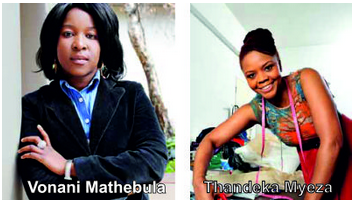 In 2011 24-year-old Vonani Mathebula established Brains Empowerment, a company that aims to bridge the gap between developed and underdeveloped communities through information, guidance in the form of mentorship and the print media. According to Mathebula, the high rate of teen pregnancies, drug abuse and unemployment in her community in Orange Farm, Gauteng motivated her to establish the company. “I want to empower South Africans by ensuring that we become a source of information,” she explains.
In 2011 24-year-old Vonani Mathebula established Brains Empowerment, a company that aims to bridge the gap between developed and underdeveloped communities through information, guidance in the form of mentorship and the print media. According to Mathebula, the high rate of teen pregnancies, drug abuse and unemployment in her community in Orange Farm, Gauteng motivated her to establish the company. “I want to empower South Africans by ensuring that we become a source of information,” she explains.
Mathebula is particularly passionate about empowering women through her magazine called Successful Women Magazine. The bi-monthly, informative and inspirational magazine equips women with information about education, the corporate environment, entrepreneurship, sports and more. She has featured many inspirational people in her magazine such as Dr Richard Maponya and media personality Rhulani Baloyi, who has proved that a disability should not be an inability.
The aim of the publication is to inspire women to take charge of their lives and strive for success. Mathebula acquired a business loan from the NYDA, which she invested in the magazine. In addition, she received the NYDA’s Marketing and Promotional Material Voucher and a Website Development Voucher. “I am extremely grateful to the NYDA,” she says.
Mathebula’s father passed away when she was just 14 years old and she was raised by her mother. “My mother works as a cleaner but she has always tried to give my two siblings and I a better life. Growing up in Orange Farm was not easy but I made a choice to strive for more,” she adds.
After matriculating Mathebula studied marketing at the University of South Africa. Her future plans include growing her magazine to new heights by having it published monthly and nationally. Mathebula also hopes to start a magazine for men, as well as an inspirational magazine for persons with disabilities.
There is clearly no stopping this ambitious and hardworking young woman in her quest to empower and motivate South Africans.
Thandeka Myeza
Entrepreneur Thandeka Myeza is making waves in Durban, KwaZulu-Natal through her fashion label Malesna Design. Myeza discovered her love for fashion design while in high school. “I grew up in an environment where everyone wanted to be a doctor or lawyer but I became exposed to other careers and discovered that I am good with my hands,” she says.
After matric, Myeza studied towards a Diploma in Fashion Design and started working from her home in Pinetown. “Those were some of the most difficult years of my life. I did not have many clients and would go for months without an income,” she recalls.
Despite these challenging times she was never tempted to look for a full-time job because she believed there were better days ahead.
A change of luck came in 2007 when she moved to Durban. “People wanted to know where I got my clothes from and word of mouth worked wonders,” she says.
As one of the three top designers at the 2009 Eastern Cape Fashion Week, Myeza got an opportunity to supply a fashion store in East London. “I needed additional machinery and fabric so I approached the banks for a loan but was rejected. I then approached the NYDA and they assisted me with a R50 000 business loan,” she explains.
Today, Myeza supplies another fashion store in Durban and is the chairperson of KwaZulu-Natal Youth Designers, a group of 10 fashion designers who have fashion stores in Durban and plan to open more stores in KwaZulu-Natal and the rest of the country.
In 2010 she won the Citibank Overall Entrepreneur Award after being nominated by the NYDA.
Myeza continues to dress ordinary women and high profile personalities for occasions such as the Durban July and weddings. “I want to grow the Malesna brand so that I can establish stand-alone fashion stores throughout the country and inspire other women to follow their dreams,” she says.
Smart-card upgrade for grants
Smart-card upgrade for grants sadminThe South African Social Security Agency (SASSA) has begun the third phase of its campaign to re-register recipients of social grants.
 Those who receive social grants have to reregister on the new biometric-based payment system to receive a new SASSA payment card. The card is convenient, easy to use and allows people to get their social grants from an ATM, cash pay point or retail store.
Those who receive social grants have to reregister on the new biometric-based payment system to receive a new SASSA payment card. The card is convenient, easy to use and allows people to get their social grants from an ATM, cash pay point or retail store.
The first phase targeted people who receive their grants at a cash pay point, while the second phase targeted those who receive their grants at a post office.
SASSA has set aside January to March 2013 for the third phase, which aims to re-register people who receive their social grants through banks. The agency says it has issued letters to those who receive social grants, explaining their individual dates for re-registration.
“Beneficiaries are requested to visit sites on the specified dates, so as to minimise long queues, congestion or over-crowding.
“Beneficiaries are reminded not to panic, spend the night at re-registration sites or visit the sites on dates that they were not allocated,” SASSA said.
SASSA will visit sick and frail senior citizens over the age of 75 to help with their reregistration.
SASSA spokesperson Paseka Letsatsi said the aim was reduce the burden of senior citizens having to travel long distances to re-register at the agency’s sites. “We are trying to make life simple for them,” he added.
Senior citizens who are over the age of 75 and are sick or frail can call these numbers: 0800 601 011, 0800 600 160 or 012 400 2322. They will then be contacted by a SASSA employee who will make an appointment with the senior citizen before going to re-register them in the comfort of their home.
Those who have lost their SASSA payment cards or do not have a personal information number (PIN) code are requested to visit their local SASSA office for assistance.
SASSA has urged beneficiaries not to hand over their payment cards or reveal their PIN codes to anyone, even family members. A customer care toll-free number is available for beneficiaries to call for help.
For more information contact SASSA on 012 400 2000 or the Grants Helpline on 0800 601 011.
SA’s expectations high for 2013 State of the Nation Address
SA’s expectations high for 2013 State of the Nation Address sadminIt’s that time of the year again when President Jacob Zuma delivers the State of the Nation Address (SONA), outlining government priorities for the year ahead. This year’s SONA takes place on 14 February. It is an opportunity for the President, as head of state, to assess the country’s domestic and foreign outlook and to outline key projects to improve government’s efforts to achieve a better life for South Africans. Vuk’uzenzele caught up with ordinary South Africans to find out what issues they expect the President to address.
 DUMISILE HLOMBE
DUMISILE HLOMBE
Job creation should be at the forefront of the President’s speech. We also want to know how the Eskom issue will be resolved. Eskom wants to increase electricity by 16 per cent and this will result in job losses. The President must say something about this.
 MARISA ENGELBRECHT
MARISA ENGELBRECHT
Government should focus less on hand outs and more on teaching people how to fend for themselves. Job creation is mentioned year after year but it is becoming a cliché. Education should look at empowering students and learners, rather than fighting over lost textbooks. Technology is here, use it! Why wait for textbooks when everything is available online. Don’t tell me this is not possible for rural schools. There is always a way. Lastly, maybe government should start living by example - the change starts with you, government.
 THULI NDLOVU
THULI NDLOVU
The President must give us a clear view on the state of education in our country. There are too many learners dropping out. We want to know what government is going to do about it. We also hope there will be an improvement in the salaries of teachers.
 NICHOLAS FRANCIS
NICHOLAS FRANCIS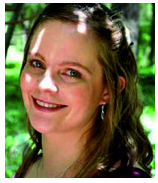 ANNELIE WHEELER
ANNELIE WHEELER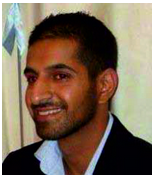 ZAKIR LAHER
ZAKIR LAHER NASHIKA ANAND
NASHIKA ANAND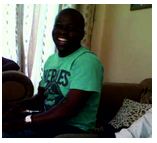 MTHUNZI GUMEDE
MTHUNZI GUMEDE MPHO MATSIMELA
MPHO MATSIMELA LUCAS ABSALOM MABUNDA
LUCAS ABSALOM MABUNDAUnabridged birth certificates free for first-time applicants
Unabridged birth certificates free for first-time applicants sadminAs of 2013 the Department of Home Affairs is only issuing unabridged birth certificates.
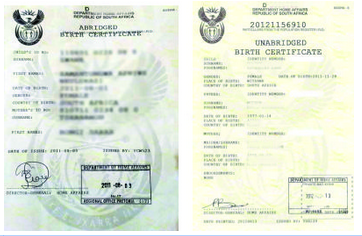 According to Home Affairs Minister Naledi Pandor, the unabridged certificates will be issued free of charge to all first time applicants, who will not have to pay the R75 previously expected of them.
According to Home Affairs Minister Naledi Pandor, the unabridged certificates will be issued free of charge to all first time applicants, who will not have to pay the R75 previously expected of them.
Minister Pandor said the unabridged certificates would be issued on the spot, reducing the turn-around time experienced when applying for the abridged birth certificate.
The abridged birth certificate is a computer printout birth certificate, which contains only the details of the individual’s birth, identity number, names in full and country of birth. It is issued at the regional or district offices of the Department of Home Affairs.
Unabridged birth certificates, on the other hand, contains in addition to the above details, the parents’ particulars in full, identity numbers, names in full, city or town of birth and the citizenship at the time of the individual’s birth.
You may be required to produce the unabridged birth certificate when you travel overseas, claim citizenship by descent, apply for permanent residence or submit an insurance claim. It can also help in some cases to prove who the individual’s parents are.
On the subject of duplicate identity documents (IDs), Minister Pandor said her department was intensifying efforts to deal with the problem. She said there were 29 677 South Africans with duplicate IDs.
“We also commissioned TransUnion to track down the holders of duplicate IDs. We took this extraordinary step because if you have a duplicate ID, you won't be able to hold a bank account, access social grants, housing and other government services or enrol for further education and training,” she said.
According to Minister Pandor, only a few of those whose names were published on the list of people with duplicate IDs have come forward to have their ID conflicts resolved. She said her department would continue to track down the remaining individuals.
“Once we have made contact, we will invalidate the duplicate IDs, remove them from our National Population Register, and advise all banks and other relevant government institutions.”
Minister Pandor also announced that the South African Citizenship Amendment Act of 2010 would be implemented with effect from 1 January 2013.
The Act aims to make it easier to apply for citizenship on the basis of birth, descent and naturalisation.
For more information contact the department’s hotline on 0800 601 190.
Young inmate steals matric limelight
Young inmate steals matric limelight sadminAt 17, Chris Phumlani Mazibuko stole a car with his friends and ended up in prison. In 2008 he was given a 10-year sentence for armed robbery.
Four years later, Mazibuko has emerged as the best performing inmate in the 2012 matric exams after receiving distinctions for isiZulu, English, life orientation, business studies and economics.
Mazibuko, now 23, has been accepted to study for a degree in Business Science at the University of KwaZulu-Natal, which he will pursue through correspondence.
According to the spokesperson for Correctional Services in KwaZulu-Natal, Nokuthula
Zikhali, Mazibuko’s achievement was a present to his mother. “This was to apologise to his mother for embarrassing her by landing up in prison,” she explained.
Mazibuko completed his Grade 12 at UseThubeni Youth School at Durban Westville Youth Centre situated at Westville Correctional Services in KwaZulu-Natal.
He was in Grade 10 at Queensburgh High School in Durban when he was arrested.
“When speaking to Mazibuko it is clear that he loved school and was just lead astray by peer pressure. We do believe that he will accomplish his dream of getting a degree. He was very committed to his studies. Mazibuko is also a very creative person. He sews his own clothes and also for others in prison,” said Zikhali.
Mazibuko is proof that you can turn your life around even while in prison, Zikhali pointed out.
Inmates who wrote the 2012 matric exams achieved a 79.25 per cent pass rate, more than the 73.9 per cent national pass rate.
The inmates’ pass rate was a significant improvement on the 68.06 per cent they recorded in 2011.
Of the 53 offenders who wrote all subjects for the 2012 National Senior Certificate exams, 22 achieved results that qualified them to study towards bachelor qualifications, 15 qualified to study for a diploma and five qualified to study towards a higher certificate.
The best performing Correctional Centre School was Johannesburg Correctional Centre School, which achieved a 94 per cent pass rate, followed by UseThubeni Youth School with 81 per cent and Emthonjeni Combined School in Gauteng with 66 per cent.
“We want to congratulate our inmates on achieving a 79.25 per cent pass rate in the 2012 National Senior Certificate examinations, and wish them every success in their efforts to empower, and improve their lives. We also want to convey our appreciation to all role players, including the educators, tutors and correctional officials,” said Minister of Correctional Services Sibusiso Ndebele.
Currently 1 490 offenders are studying towards post-matric qualifications, 4 042 towards Further Education and Training college programmes that include electrical engineering, civil engineering, mechanical engineering and marketing.
There are also 3 853 inmates studying towards skills development programmes in basic business skills training and entrepreneurship.
From April 2013, it will be compulsory for every inmate who does not have a qualification equivalent to Grade 9 to complete Adult Education and Training level 1 to 4.
“We are working towards turning our prisons into learning centres. Key to rehabilitation is empowering offenders to have skills to function effectively in society on their release but, equally important, is to ensure that offenders are actively involved in productive activity while they serve their sentences,” said Minster Ndebele.
SA champions African agenda at BRICS
SA champions African agenda at BRICS sadminInternational relations
South Africa’s hosting of the Brazil, Russia, India, China and South Africa (BRICS) Summit in March marks the country’s increased role in the distribution of power internationally.
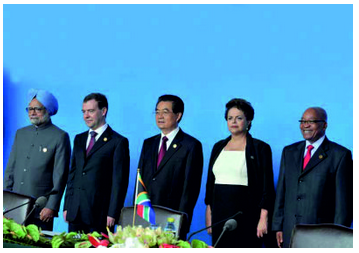 BRICS has enabled individual countries, which were insignificant in the past, to form an alliance that has given them more power.
BRICS has enabled individual countries, which were insignificant in the past, to form an alliance that has given them more power.
The BRICS bloc represents 43 per cent of the world’s population, approximately one fifth of global gross domestic product (GDP) estimated at $13.7 trillion (approximately R119 trillion), as well as combined foreign reserves estimated at $4.4 trillion (approximately R38 trillion).
In recent years, South Africa has substantially increased trade with its BRICS partners. According to the latest trade figures released by the Department of Trade and Industry, bilateral trade between South Africa and the BRICS countries increased substantially in 2011, powered by significant increases in exports.
Bilateral trade between South Africa and China last year grew by 32 per cent, trade with India by 25 per cent and trade with Brazil by 20 per cent. In 2011, South African exports to China grew the most - at 46 per cent - while exports to India grew by 20 per cent, to Brazil by 14 per cent, and to Russia by seven per cent. The BRICS bloc represents the world’s leading emerging market economies.
South Africa’s foreign policy emphasises that its national interests are better safeguarded by not just focusing on its own national interests, but broadly on the interests of the region and continent.
South Africa’s interaction with BRICS is based on three levels of engagement - national, where national interests are advanced; regional, where regional integration is promoted and on a global level, where the country advocates for a more inclusive global governance system.
South Africa has used its membership of BRICS to create economic opportunities for its development as well as that of the continent.
The country has placed specific emphasis on the African Union mandate given to President Jacob Zuma to promote infrastructure development across the continent. The summit in March will constitute another high-level opportunity to further support key priority areas of the African agenda.
Africa is emerging as one of the fastest growing markets in the world. The growth potential of BRICS in the coming years will also impact on the future of emerging markets and developing economies – especially in the case of Africa.
As part of the developing world, South Africa faces the challenges of poverty, unemployment and inequality. BRICS leaders engage in peer learning and share best practices and development models.
At the New Delhi Summit in 2012, the Indian Prime Minister, Manmohan Singh, outlined 10 specific priority areas. These included job creation; skills upgrading; energy, food and water security; sustainable growth through expanded trade opportunities; clean energy; income inequality; urbanisation; and the impact of the external geo-political environment.
Due to the complex nature of the country’s challenges, the South African government has singled out infrastructure development as a key vehicle for improving the quality of life of the people. Infrastructure development is also expected to boost South Africa’s competitiveness and create jobs. BRICS partners view South Africa as a springboard into the African continent and a partner for economic development opportunities.
At the New Delhi Summit, President Zuma met with captains of industry from fellow BRICS member states and invited them to join hands with South African companies in the development of Africa.
In the Delhi Declaration, the leaders expressed support for Africa’s industrialisation, saying they “attach the highest importance to economic growth that supports development and stability in Africa, as many of these countries have not yet realised their full economic potential”.
The BRICS economies, which already constitute between 20 and 25 per cent of global GDP, will link a large part of Africa with the fastest growing economies of the world.
*Nelson Kgwete is Director: Media Liaison at the Department of International Relations and Cooperation.
US set to increase trade with sub-Saharan Africa
US set to increase trade with sub-Saharan Africa sadminInternational relations
Business relations between sub-Saharan Africa and the United States (US) are set to reach new heights following the launch of a new campaign by acting US Secretary of Commerce Rebecca Blank.
Blank launched the Doing Business in Africa campaign recently.
The campaign aims to increase US business involvement in Africa and further the US commercial relationship with the continent.
In 2012 US President Barack Obama issued the US Strategy Toward Sub-Saharan Africa, committing his country to finding ways for economic growth, trade and investment in sub-Saharan Africa.
“Overall the campaign is about finding new ways to form stronger partnerships for prosperity,” said Blank
The campaign will cover the entire sub- Saharan region. “We expect to be working in as many countries as we possibly can on this. There are no exclusions at all,” she pointed out.
Blank said US agencies would work to encourage US companies and Africanowned businesses to trade with and invest in Africa through expanded trade promotion programmes, tailored towards the continent.
Mfundo Hlatshwayo, who is an executive in Trade, Investment and Special Programmes at Business Unity South Africa, said there were real opportunities for emerging companies in South Africa to benefit from increased US investment.
“South African companies may partner with US firms through joint ventures, supply services and products to the investors, or receive much needed capital injection for their local operations. Nonetheless, the success of the campaign will be determined by the commitment of the US to the campaign as well as the global economic environment,” he said.
Hlatshwayo added that the US realised it needed to tap into growth markets, which currently include the African continent, to sustain its economic growth.
“The engines of global growth are currently in Asia and Africa, with Asia having grown at 5.5 per cent and Africa at approximately five per cent for 2012. These two regions are the fastest growth areas in the world.”
He explained that trade between the US and the Southern African Development Community had been increasing since 2002 before collapsing in 2008.
“Trade between the two regions has been on the rebound and in 2011 stood at $66 billion (approximately R574 billion).”
The US has diverse markets, which South African entrepreneurs could tap into, Hlatshwayo said.
He added that the South African automotive and chemical industries were doing quite well in the US but there was room for increased South African export there. The agriculture, winery and textile sectors were also areas of focus for small, medium and micro enterprises.
On a recent visit to South Africa, US Secretary of State Hillary Clinton said that the US was committed to including South Africa as it prepared to extend the Africa Growth and Opportunity Act (AGOA) beyond 2015.
The Act was signed in 2000 to offer tangible incentives for African countries to continue their efforts in opening up their economies and building free markets.
The programme also has a Third Country Fabric Provision (TCFP) from which South Africa has been excluded since its inception.
The TCFP provision is crucial to the continued survival of Africa’s textile and clothing industry. It has generated jobs in sub-Saharan Africa and has helped American retailers reduce their costs.
The inclusion of South Africa in the TCFP would enable South African exporters to enjoy AGOA benefits for clothing and to source clothing inputs from countries outside Africa.
Speaking at an AGOA beneficiaries’ conference in August 2012, Trade and Industry Minister Rob Davies said that the South African government would like an extension of AGOA for a reasonable period.
Blank said that the current administration had stated its strong support for on-going access to AGOA.
The US government has added that it recognises that financial help is vital to increasing trade and investment in sub-Saharan Africa.
As part of the campaign, agencies like the Overseas Private Investment Agency Corporation will assist with the opening of the establishment of the US-Africa Clean Energy Development and Finance Centre in Johannesburg.
It aims to provide a coordinated approach to clean energy project development in the region. The centre will also coordinate its resources with those of the US private sector, local development banks and private banks, among others.
Blank praised the South African government for working towards increasing access to electricity, saying energy was crucial for development.
Year of action for SA's key sports teams
Year of action for SA's key sports teams sadminSport, arts and culture
 South African sports fans can look forward to a packed sporting calendar this year, with the national soccer, rugby and cricket squads up against stiff competition.
South African sports fans can look forward to a packed sporting calendar this year, with the national soccer, rugby and cricket squads up against stiff competition.
Bafana Bafana will do battle in a quest to qualify for the 2014 FIFA Soccer World Cup in Brazil; the Proteas will defend their number one test ranking, while the Springboks will look to improve on their standing in the International Rugby Board rankings.
Bafana Bafana’s FIFA World Cup qualifiers
Bafana Bafana’s quest to play in their third FIFA World Cup will continue this year with qualifying games against Botswana and the Central African Republic.
The qualifying fixtures:
- Friday, 22 March (Venue to be announced): South Africa v Central African Republic.
- Friday, 7 June (Venue to be announced): Central African Republic v South Africa.
- Friday, 6 September (Venue to be announced): South Africa v Botswana.
The Springboks at home
Springbok fans will have the opportunity to watch their heroes in action when they face Scotland, Samoa and Italy in a new tournament featuring double-header test matches in June.
Fixtures for the tournament:
Saturday, 8 June (Mbombela Stadium, Nelspruit): Scotland v Samoa; Springboks v Italy.
Saturday, 15 June (Mr. Price Kings Park, Durban): Samoa v Italy; Springboks v Scotland.
Saturday, 22 June (Loftus Versfeld, Pretoria): Team 3 v Team 4; Team 1 v Team 2.
The Springboks will also participate in the second edition of the Castle Rugby Championship featuring world champions New Zealand and the two super powers of rugby in the southern hemisphere Argentina and Australia.
Fixtures for the Castle Rugby Championship:
Saturday, 17 August (Free State Stadium, Bloemfontein): Springboks v Argentina.
Saturday, 28 September (Newlands, Cape Town): Springboks v Australia.
Saturday, 5 October (Coca-Cola Park, Johannesburg): Springboks v New Zealand.
The Proteas
The Proteas will defend their number one test ranking against Pakistan in a three match test series, followed by two T20 Internationals and five One Day Internationals that will be played across the country. The series against Pakistan started earlier this month and will end on 24 March.
Fixtures for the test series against Pakistan:
- 1 – 5 February: 1st Sunfoil Test, Bidvest Wanderers, Johannesburg.
- 14 – 18 February: 2nd Sunfoil Test, Sahara Park Newlands, Cape Town.
- 22 – 26 February: 3rd Sunfoil Test, Super Sport Park, Centurion.
T20 International fixtures:
- 1 March: 1st T20 International, Sahara Stadium, Kingsmead, Durban.
- 3 March: 2nd T20 International, SuperSport Park, Centurion.
Fixtures for the One Day International series against Pakistan:
- 10 March: 1st Momentum One Day International, Chevrolet Park, Bloemfontein.
- 15 March: 2nd Momentum One Day International, Super Sport Park, Centurion.
- 17 March: 3rd Momentum One Day International, Bidvest Wanderers, Johannesburg.
- 21 March: 4th Momentum One Day International, Sahara Stadium Kingsmead, Durban.
- 24 March: 5th Momentum One Day International, Sahara Park, Willowmore, Benoni.
Ishashalazi Theatre Festival promises riveting performances
Ishashalazi Theatre Festival promises riveting performances sadminSport, arts and culture
Soweto theatre lovers will have a second bite at the cherry when the Ishashalazi Theatre Festival returns to the newly-built Soweto Theatre in Jabulani, Gauteng.
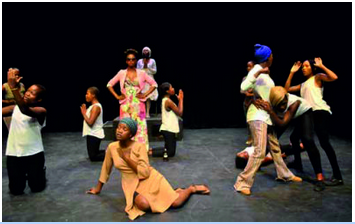 The festival is scheduled for a two-day spectacle on 26 and 27 February and patrons can look forward to another round of captivating performances.
The festival is scheduled for a two-day spectacle on 26 and 27 February and patrons can look forward to another round of captivating performances.
The festival, which took place at the same venue in December 2012, is a result of collaboration between the Gauteng Theatre Practitioners Committee and the Gauteng Department of Sport, Arts, Culture and Recreation, which started in 2001.
Twenty-three groups and six poets are selected from five regions in Gauteng to perform at the festival.
Those selected then participate in a mentoring workshop by established and qualified artists. At the workshop the groups are trimmed to a final 20 who then perform at the festival.
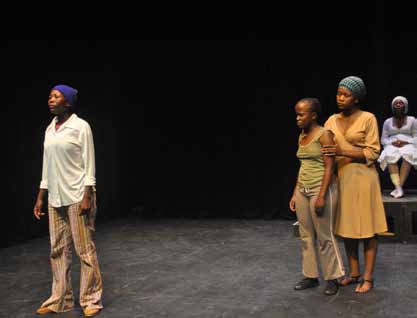 Theatrical plays will be the order of the day with five plays per day, while there will be poetry performances during breaks. Plays can also include musicals or dancing.
Theatrical plays will be the order of the day with five plays per day, while there will be poetry performances during breaks. Plays can also include musicals or dancing.
Performances will be judged by an expert panel and at the end of the festival there will be an awards ceremony with the top performances receiving prizes.
*Martin Mathebula works for the Gauteng Department of Sports, Arts, Culture and Recreation.